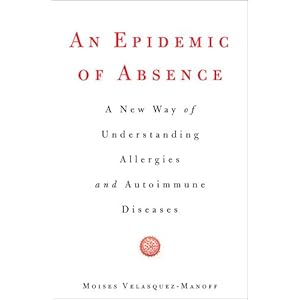While we might suspect vaccinations are contributing to the alarming rise of autism in this country, Moises Velasquez-Manoff, the author of An Epidemic of Absence: A New Way of Understanding Allergies and Autoimmune Diseases, thinks autism might be related to immune responses stretching farther back into the womb. Perhaps even to the mother’s autoimmune disorder.
In a recent New York Times column on autoimmunity and autism, Velasquez-Manoff points out that Danish research studying over 700,000 births shows a mother’s immune dysfunction can raise the child’s risk of autism by 350%.
As a mom with an autoimmune disorder, multiple sclerosis, I am particularly interested in learning about this link. Although my kids have aged beyond the autism zone, both show food and chemical sensitivity reactions (inflammation) and I’m certain there is a connection.
Velasquez-Manoff says: “The theme here is maternal immune dysregulation. Earlier this year, scientists presented direct evidence of this prenatal imbalance. Amniotic fluid collected from Danish newborns who later developed autism looked mildly inflamed.”
It all comes down to inflammation.
It all comes down to inflammation, yet again, but this time it appears to be the mother’s inflammatory response during gestation that influences the amniotic fluid that sensitizes the developing child, who later manifests as autistic. Perhaps autism is what it looks like when unwelcome swelling interferes with brain development.
The Feingold Association has a lot of research showing that autistic kids manifest behavior changes from ingesting chemical additives like the petroleum-based, FDA-approved Food Dyes & Colors (FD&C) in so many of our food (or food-like) products.
My goal, in both my own life and in my clinical practice as a naturopath, always focuses on reducing and eliminating inflammation through customized dietary strategies. Autoimmune disorders, like multiple sclerosis, fibromyalgia, and rheumatoid arthritis, respond so well to personalized anti-inflammatory menus that I started the Fight MS with Food project to gather data about the efficacy of this approach.
Velasquez-Manoff might advocate intentional parasitic infection as a way to combat hypersensitivity that manifests as autoimmunity, but personally I’d rather change what I’m eating than choose to host a colony of parasitic hitchhikers. My theory reverses his: I think that sometimes parasitic infection can cause the inflammation that leads to autoimmune disorders, not cure them.

